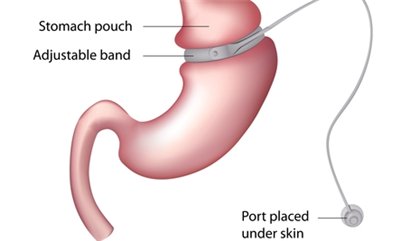Many people search for quick fixes, but the reality is more about smart strategies than miracle solutions. With the right approach, you can reduce bloating, cut excess water weight, and start a fat-loss process that, if maintained, will bring long-term results. The key is consistency and making small, manageable changes that your body can adapt to over time.
Time to Lose 20 Pounds vs. Long-Term Weight Maintenance
| Time to Lose 20 Pounds | Chance of Maintaining Weight (%) |
|---|---|
| Less than 1 month (Rapid Loss) | 20% |
| 1-3 months | 50% |
| 3-6 months | 80% |
| 6+ months (Gradual Loss) | 90% |
This chart illustrates the relationship between the time taken to lose 20 pounds and the likelihood of maintaining the weight loss. Rapid weight loss often leads to regain, while gradual and sustained weight loss is more likely to result in long-term maintenance.
Is It Possible to Lose Belly Fat in Just a Week?
Yes, but with some realistic expectations. While you won’t achieve six-pack abs overnight, you can significantly reduce bloating, shed excess water weight, and start burning fat with the right combination of diet, exercise, and lifestyle changes.
1. Cut Down on Processed Carbs
Refined carbs like white bread, pasta, and sugary snacks cause insulin spikes and promote fat storage around your belly. Instead, focus on complex carbs such as:
- Whole grains (quinoa, brown rice, oats)
- Benefits: Provide sustained energy, rich in fiber, and help regulate blood sugar levels.
- Drawbacks: Overconsumption can lead to excess calorie intake, which may slow weight loss.
- Alternatives: If you have gluten sensitivity, try buckwheat, amaranth, or millet.
- What to expect: You’ll feel fuller for longer, experience more stable energy levels, and have better digestion.
- Leafy greens
- Benefits: Low in calories, high in vitamins, minerals, and antioxidants that support metabolism.
- Drawbacks: Some people may experience bloating due to high fiber content.
- Alternatives: If greens like spinach are too harsh on your stomach, try zucchini, cucumbers, or steamed greens.
- What to expect: Improved digestion, reduced cravings, and enhanced overall well-being.
- Nuts and seeds
- Benefits: Provide healthy fats and proteins essential for satiety and energy.
- Drawbacks: High in calories—consuming too much can stall fat loss.
- Alternatives: If nuts are too calorie-dense, opt for chia seeds, flaxseeds, or pumpkin seeds in small amounts.
- What to expect: Better brain function, stabilized hunger, and a boost in healthy fat intake.
2. Increase Protein Intake
Protein helps control hunger, supports muscle growth, and boosts metabolism, making it a crucial component for your 7-days fat-loss plan. However, to fully benefit from a high-protein diet, it’s essential to apply the method correctly.
How to Implement:
- Prioritize lean meats: Opt for skinless chicken breast, turkey, and fish (such as salmon and cod) as they provide high-quality protein without excess fat. If red meat is included, choose lean cuts like sirloin.
- Distribute protein intake evenly: Instead of consuming most protein at dinner, aim for balanced portions throughout the day—breakfast, lunch, and dinner.
- Combine with fiber-rich foods: Pairing protein with vegetables, whole grains, and legumes improves digestion and keeps you full longer.
- Cook wisely: Avoid frying; instead, grill, bake, or steam your proteins to retain their nutritional benefits.
What to Expect:
- First few days: You may feel fuller than usual, which can help with reducing cravings.
- After a week: Improved muscle recovery, sustained energy levels, and reduced appetite.
- Long-term benefits: Increased muscle mass, better metabolism, and easier fat loss.
Satiety Levels of Different Foods
| Food Type | Satiety Level (%) |
|---|---|
| High-Protein Foods (Eggs, Chicken, Fish) | 90% |
| Whole Grains (Oats, Brown Rice, Quinoa) | 80% |
| Fiber-Rich Vegetables (Broccoli, Spinach, Carrots) | 75% |
| Healthy Fats (Avocado, Nuts, Olive Oil) | 65% |
| Processed Carbs & Sugary Foods | 30% |
This chart illustrates how different food groups impact satiety. High-protein foods rank the highest in keeping you full, while processed carbs and sugary foods provide the least satiety, often leading to hunger spikes.
3. Hydrate Like a Pro
Water helps flush toxins, reduce bloating, and improve digestion, but if you’re not used to drinking much water, start gradually. Instead of jumping straight to 8 glasses a day, increase your intake slowly—add one extra glass each day until your body adjusts.
How to make it easier:
- Flavor alternatives: If plain water feels boring, try unsweetened herbal tea, infused water with lemon, cucumber, or berries, or diluted coconut water.
- Gradual increase: Begin with just one extra cup in the morning and build from there.
- Use reminders: Set phone alerts or use a water tracking app to stay on schedule.
- Pair it with habits: Drink a glass before meals, after bathroom breaks, or while checking emails to make it routine.
What to expect:
- First few days: You might feel bloated or have more frequent trips to the bathroom—this is normal and will stabilize.
- After a week: Your body adapts, and hydration becomes second nature. You’ll also notice better digestion and improved energy levels.
4. High-Intensity Interval Training (HIIT)
HIIT workouts help burn more calories in less time. Try this 15-minute HIIT routine:
- Jump Squats – 40 seconds (Expect your thighs to burn and your heart rate to spike. Push through by focusing on controlled breathing.)
- Burpees – 30 seconds (You’ll likely feel winded quickly—keep a steady rhythm and don’t sacrifice form for speed.)
- Mountain Climbers – 40 seconds (Your arms and core may fatigue early, but remind yourself it’s just a few more seconds to push through.)
- Rest – 20 seconds (Use this time to slow your breathing, sip water if needed, and prepare for the next round.)
- Repeat 4 times (The first round feels tough, but your body adapts. By the last round, you’ll feel both exhausted and accomplished.)
Calories Burned in 15 Minutes of Different Exercises
This horizontal bar chart illustrates the estimated calories burned in 15 minutes across different exercises. Jump rope tops the list with 200 kcal burned, while strength training burns the least at 140 kcal. The data helps compare workout intensities for effective calorie expenditure.
5. Sleep Matters More Than You Think
Lack of sleep increases cortisol (stress hormone), leading to more belly fat. Aim for 7-9 hours of quality sleep every night, but consider splitting it into a biphasic sleep pattern—a primary nighttime sleep of 6-7 hours and a short 20-30 minute nap during the day.
How to implement:
- Set a consistent bedtime and wake-up time to regulate your circadian rhythm.
- Reduce blue light exposure by turning off screens one hour before bed to enhance melatonin production.
- If possible, take a brief nap in the early afternoon to boost alertness and help reduce stress-induced fat storage.
What to expect:
- The first few nights of adjusting may feel challenging, especially if you’re used to inconsistent sleep patterns. Stick with it, and your body will naturally fall into a rhythm.
- The midday nap should feel refreshing, not groggy—keep it short to avoid interfering with nighttime sleep.
6. Try Intermittent Fasting
Intermittent fasting (IF) helps regulate insulin and burn fat more efficiently. Popular IF methods include:
- 16:8 Method (fast for 16 hours, eat within an 8-hour window)
- How to implement: Start by skipping breakfast and having your first meal at noon. Eat balanced meals with proteins, healthy fats, and fiber within the 8-hour window, then stop eating after 8 PM. Gradually reduce snacking outside this window to help your body adjust.
- What to expect: The first few days may bring hunger pangs, but drinking water or herbal tea helps. After a week, your body adapts, and cravings decrease.
- 5:2 Diet (normal eating 5 days, calorie restriction 2 days)
- How to implement: Choose two non-consecutive days in a week (e.g., Monday and Thursday) to consume around 500-600 calories. Stick to high-protein, fiber-rich foods like lean meats, legumes, and vegetables to stay full longer.
- What to expect: The first fasting day may feel challenging with low energy, but staying busy and drinking water keeps hunger at bay. By the second week, the body adjusts, making fasting easier.
Editorial Advice
Quick fixes won’t lead to long-term success, but following these strategies can kickstart your journey to a leaner waistline. Stick with these habits beyond the week for sustained results! According to Reyus Mammadli, health care advisor, the key to lasting fat loss is consistency: “Make small, sustainable changes rather than drastic short-term fixes. Your body will adapt better, and the results will be long-lasting.”








